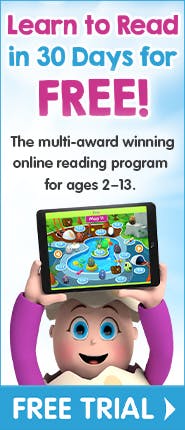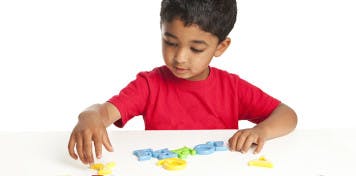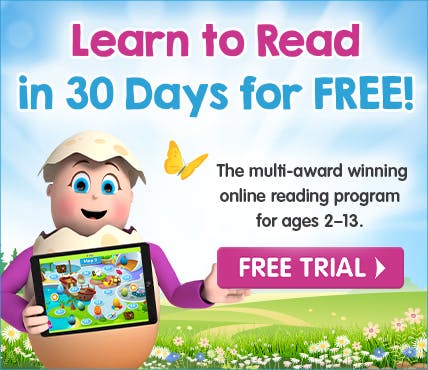


10 Things Your Child Should Know Before Starting School
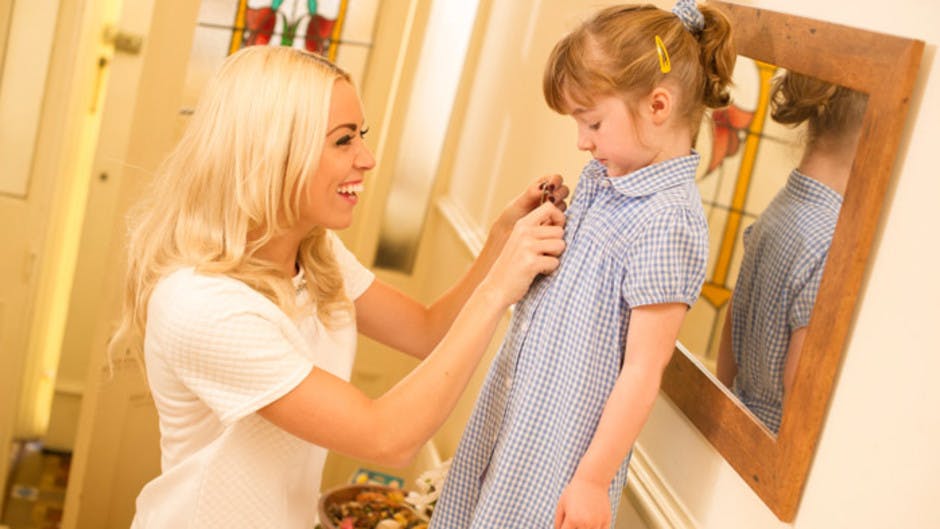
ABC Reading Eggs and ABC Mathseeds help children build essential reading and maths skills and prepare for school. Free trial
It's normal to feel a bit anxious about sending your child off to 'big school'. As a parent, you want to be absolutely certain your little one is fully prepared to adapt to a classroom environment, make new friends and be able to clearly communicate their needs to their teacher whenever they need help.
But when it comes to specific skills and knowledge, many parents are surprised by how much their child is expected to know before kindergarten.
Research shows that children who are well‑prepared for their first year of school have a much better chance of settling in and succeeding, giving them a significant head start for later years.
Your child's school should be able to provide you with a list of things they are expected to know.
Here are the 10 most common things they should know before starting school to help them feel confident and ready for their biggest adventure yet.
1. Listen to and follow simple instructions
By the time they start school, most children should be able to listen to and follow two- to three-part instructions.
What you can do: Give your child daily tasks around the house, like putting away their toys or setting the table for breakfast in the morning. Use two‑part instructions like, “Pick up your toys and put them in the box.” and three‑part instructions like, "Put the spoons, cups and napkins onto the table.”
Read our article for tips and activities to improve your child's listening skills.
2. Communicate their needs
Children should be able to clearly communicate their needs, especially to their teacher.
What you can do: Encourage your child to speak in complete sentences of five to six words, such as “I would like some water, please." or “I need help with this word.” Always encourage them to explain how they are feeling: “I am hungry.” “My leg hurts.” “I would like to play outside.”
Get your child ready for school!
ABC Reading Eggs and ABC Mathseeds make reading and maths fun for young kids, building essential early reading, phonics and number skills while they play. Start your free trial today.
3. Dress and feed themselves
Children should feel comfortable managing their own clothes (e.g. zippers and buttons). They should also know how to open a juice container and unwrap their own food.
It's also at this age that children learn how to tie their shoes, though some won't get the hang of it until around age six.
What you can do: Help your child practice dressing themselves each morning until they can do it independently. This includes zipping pants, buttoning shirts, putting on socks and taking off gloves and jackets. Teach your child how to open food packaging and praise them for doing a 'big boy' or 'big girl' job.
4. Share toys with others and take turns
A big part of starting school is about getting along well with others, completing a task or project through teamwork and treating others with respect.
What you can do: Play board games at home to help your child become familiar with taking turns. If you have more than one child, encourage them to work on projects and tasks together at home.
5. Understand and retell simple stories
In their first year of school, children should be able to listen to and understand 5–10 minute stories. Most will be able to retell simple stories that they have heard, and some may even begin telling original stories.
What you can do: If you don't have a regular reading routine at your house, it's never too late to start. Numerous studies have found that children who are read to regularly at home will have a much better chance at succeeding in school overall. Encourage your child to retell stories you have read by drawing pictures, using puppets and role‑playing.
6. Match and sort objects
Children should be able to match and sort objects by simple attributes, such as shape, colour and function (e.g. food, clothes, things you can cook with).
What you can do: Use books, songs and play guessing games that teach your child about opposites. This will help them understand that objects can be identified by their attributes. To help your child sort, you need at least two different types of objects. Start with fewer categories (sorting by two types) and gradually progress to three, four or more. Slowly demonstrate each sort before asking your child to have a go.
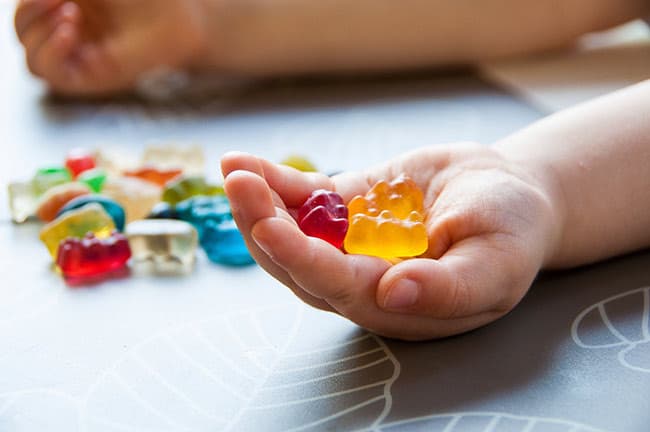
ABC Mathseeds helps kids aged 3–9 learn the essential early maths skills they need for school success. Free trial
7. Identify basic patterns, shapes and colours
These foundational skills will help your child develop essential mathematical skills and knowledge.
What you can do: Help your child point out patterns when you're out together (e.g. in clothing, along a footpath, in a picture) and turn it into a fun game. Hang up colour and shape charts at home and let your child experiment with [watercolours], crayons, blocks and playdough or clay to get familiar with colours and shapes.
Read our article with fun games to teach your child patterns.
8. Identify some numbers and understand how numbers are used
By their first year of school, many children will know how to count to at least 30 and tell what number comes before or after a given number to 20.
What you can do: Help your child point out numbers on a regular basis, like on the television, in books, on a keypad or on a phone. There are also many children's books and online games like ABC Mathseeds that teach children to count. Show your child how numbers are used in everyday activities, like following a recipe, keeping score during a game, or counting, measuring and weighing objects.
9. Identify letters, and begin to understand that letters stand for the sounds heard in words
Most children who start school will know the letters in the alphabet, and begin to understand the correlation between sounds and letters.
Some children will be able to spell and write the letters in their name. Children should be able to also identify words that rhyme, which is an indicator of phonemic awareness, one of the five components of learning to read.
What you can do: Use alphabet charts that include uppercase and lowercase versions of each letter. Phonics activities like letter races, matching rhymes and phonics hop‑scotch are all great ways to build your child's understanding of the relationship between letters and their sounds.
10. Begin to identify some sight words
Learning to identify and read sight words is crucial for young children to become fluent readers. Most children will be able to master a few sight words at the age of four (e.g. is, it, my, me, no, see, and we) and around 20 sight words by the end of their first year of school.
What you can do: The first 100 high‑frequency sight words make up more than fifty per cent of primary-level reading texts, so the sooner your child masters sight words, the more confidence they will have, and the faster they will progress towards reading fluently.
While learning a handful of sight words before school is highly beneficial for developing early reading skills, parents shouldn't be too worried if their child doesn't grasp this until later.
Check out our article with fun sight word games and worksheets.
Get your child ready for school!
ABC Reading Eggs and ABC Mathseeds make reading and maths fun for young kids, building essential early reading, phonics and number skills while they play. Start your free trial today.
